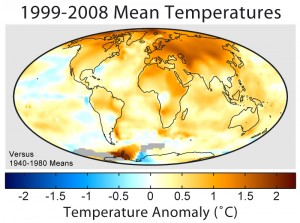Global Warming and Human Settlements in Urban Areas – An ACH Review of the 2014 WGII AR5 Final Draft
 Arizona HVAC Service Center, American Cooling and Heating, Presents a Review of the Risks, Vulnerabilities and Impact of Climate Change on People Who Live In An Urban Community
Arizona HVAC Service Center, American Cooling and Heating, Presents a Review of the Risks, Vulnerabilities and Impact of Climate Change on People Who Live In An Urban Community
“To simplify the WGII AR5 final draft summary on global warming, think three categories of impact: 1) Resources, 2) Human Settlement and 3) Human Health. In this release of the American Cooling and Heating global warming series, we focus is on how climate change affects human settlements in urban environments,” ACH Phoenix data team.
For urban residents, global warming presents increasing risk factors associated with accumulated regional vulnerabilities and the economic conditions linked to those vulnerabilities. This release of the American Cooling and Heating global warming update highlights some of the problems, some of the possible solutions and some of the current effects that climate change has imposed and will continue to impose upon people who live in urban environments. For sake of a condensed presentation, all urban regions are grouped as one with no included adjustments for site size, characteristics or financially viable conditions
Preliminary Disclosure: The contents of the Climate Change 2014: Impacts, Adaptation and Vulnerability report include the complete scientific and procedural evaluation of global warming data. Delivered in March of 2014 by the Working Group II global warming task force, the 2013 WGII AR5 IPCC Fifth Assessment Report is not yet approved in detail (1). However, the 38th Session of the IPCC has accepted the report along with the general statements of how global warming affects:
** Natural and managed world systems and world resources
** Matters of human health and human security
** AND Human settlements, including the industries and infrastructures within those settlements.
Urban Climate Adaptation Versus Urban Climate Change and the Associated Risks
Better than half of the world’s population resides, builds and works within urban communities (2). Global greenhouse gas emissions are an undesirable by-product of such tight-knit regions. Rapid growth in urban cities, especially in the low-to-middle income countries, generates an increase in vulnerable human settlements at risk of extreme weather change.
The situation can be somewhat controlled by effective governmental management of infrastructure, managed land-use and development of a strong ecosystem, but the risks factors continue to grow. Building reliable resilience while also enabling sustainable urban development demands leveraged support of climate change adaptation. A support that does not always deliver a resource-efficient solution to the growing problem of global warming and the associated climate changes hinders the resilience of the project.
The internal composition of most cities revolves around an inter-dependent system than can be managed but that can also be limited by medium confidence in limited submitted evidence. But when the evidence mounts and the management system delivers assurance of co-benefits, a powerful rise in support follows. The urban community suddenly realizes a resource-efficient method for addressing global warming and the associated climate changes.
As the risks associated with global warming increase, the negative impacts on human settlements, human health and local economies accumulate. Sea levels rise. Storms surge. Flooding, landslides and water scarcity are commonplace. Air pollution, drought and heat stress drive up the costs of air filtration, water supplies and even home air conditioning. Excessive energy consumption becomes the norm. According to the 2014 WGII AR5 Final Draft, by the year 2100 the cost of air conditioning will increase energy demands by up to 30-fold (2).
Changes in the climate impact almost every range of urban infrastructure, including sanitation and drainage, energy and water resources, transportation, and communication. Is the services arena, urban dwellers can expect a rise in risk factors associated with emergency services and personal health care response times. From economic stress factors to household well-being, the methods or managing urban communities will play a major role in future balance of the environmental and ecosystem services of the world.
For individuals, climate change affects multiple areas of life, including individual and family assets, personal health, and the methods of maintaining a decent livelihood. Yet in the human settlements that lack in essential services and infrastructure, provisions for adaptation are limited and the risks factors are explosive.
But all is not gloom and doom. Urban communities can adapt and it begins now. Every city can increment steps that lean toward a sustainable alignment with risk governance. From the private sector to the power of local and community governmental resources, the opportunities for immediate action is possible even if not currently realized in practice. It begins with a strong urban government that is capable of assessing and integrating a local regulatory framework that generates local support and confidence. It requires planning, design and allocation of resources and manpower. And it needs to be processed in incremental and transformative solutions that further increase the urban confidence in adaptation outcomes.
Next up: A look at global warming and climate change as associated with human settlements, industry and infrastructure in rural areas.
Series presented by American Cooling and Heating, Arizona HVAC Sales and Service for Trane, Amana, Goodman, Rheem, Carrier and all other major HVAC brands. For information on current ACH 2014 A/C product promotions, contact: https://americancoolingandheating.com
Disclaimer:
This article and its content do not constitute legal, financial, technical, or medical advice. While every reasonable effort has been made to ensure that this document is correct at the time of publication, the company and its employees and agents disclaim any and all liability to any person in respect of anything or the consequences of anything done or omitted to be done in reliance upon the whole or any part of this article and its content. All trademarks, logos, and associated content displayed are the property of their respective owners.
- http://m.csmonitor.com/Environment/Energy-Voices/2014/0331/IPCC-global-warming-report-why-air-conditioning-rises-30-fold-by-2100-video#unhide
- http://ipcc-wg2.gov/AR5/report/final-drafts